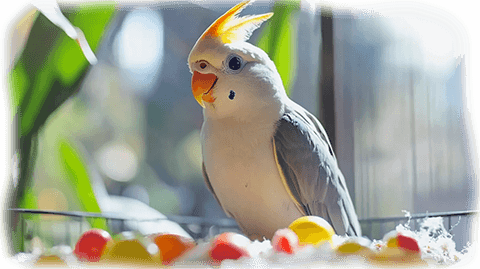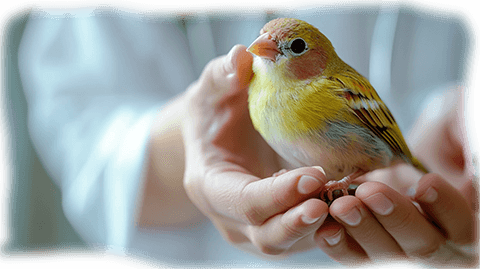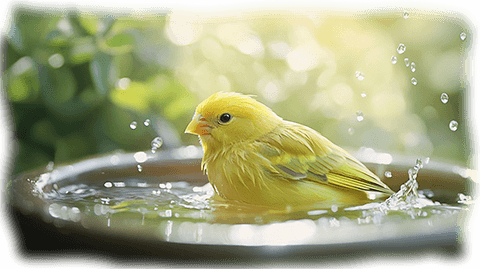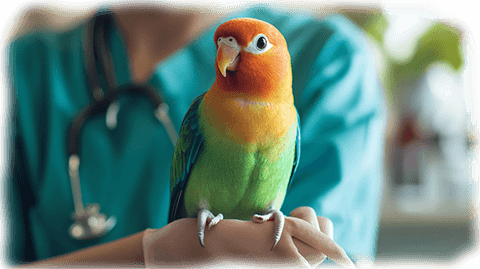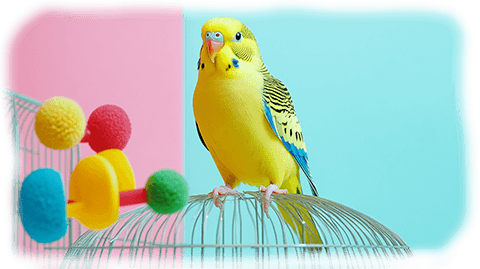Parrot Health: Tips for Keeping Your Bird Happy and Healthy
Parrots are intelligent, vibrant creatures that make fantastic companions. However, just like any pet, they require proper care and attention to maintain their health. Parrots can be prone to various health problems, especially if their diet, living conditions, or emotional needs aren’t adequately met. Below, we explore common health concerns, preventive tips, and advice on maintaining your parrot’s overall well-being.
Common Health Issues in Parrots
Parrots can suffer from a variety of health problems that range from dietary deficiencies to environmental stress. It’s important to be aware of these issues and know how to prevent or treat them.
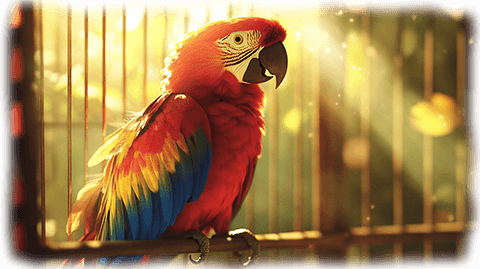
Feather Plucking
- One of the most common problems in pet parrots is feather plucking. This behavior is often linked to stress, boredom, or skin infections. Poor diet or environmental conditions can also trigger this habit.
- Prevention – Ensure your parrot has plenty of mental stimulation and toys. Maintain a proper diet rich in essential nutrients and ensure they have a clean, comfortable habitat. (Amazon affiliate link)
- Tip – If you notice your parrot plucking feathers, seek veterinary advice immediately to determine if it’s a behavioral issue or a health problem.
Respiratory Infections
- Parrots have sensitive respiratory systems, and poor air quality or improper temperature and humidity levels can lead to respiratory infections. (Amazon affiliate link)
- Symptoms – Wheezing, sneezing, coughing, nasal discharge, or difficulty breathing are signs that something may be wrong.
- Prevention – Keep your parrot’s environment free from dust, fumes, and smoke. Ensure proper ventilation in the room and maintain ideal humidity levels.
- Tip: Avoid using aerosol sprays, cleaning products, or scented candles near your parrot’s cage.
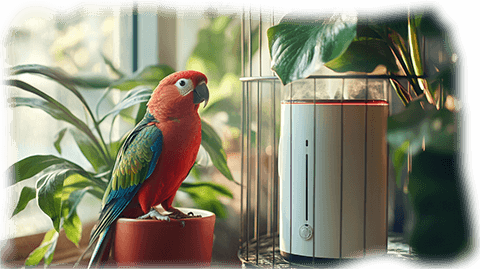
Obesity
- Obesity is a common problem in pet parrots, especially those who consume too many seeds or sugary treats. Obesity can lead to other health issues like fatty liver disease.
- Prevention – Feed your parrot a balanced diet that includes pellets, fresh fruits, and vegetables. Limit high-fat foods such as seeds and nuts. (Amazon affiliate link)
- Tip – Encourage exercise by providing plenty of space in their cage for movement, and let them out for supervised flying or climbing time.
Psittacine Beak and Feather Disease (PBFD)
- PBFD is a viral disease that affects a parrot’s feathers, beak, and immune system. It’s most commonly found in young birds and can be fatal.
- Symptoms – Feather loss, beak abnormalities, and reduced immunity to infections are key signs of this disease.
- Prevention – There is no cure for PBFD, so prevention is critical. Always purchase parrots from reputable breeders who test for the virus. Isolate any new birds for a period before introducing them to your existing parrot.
- Tip – Regular vet check-ups are essential to monitor your parrot’s health and catch any signs of PBFD early.
Malnutrition
- Many parrots suffer from malnutrition due to improper diets consisting mostly of seeds. Seeds alone don’t provide the necessary nutrients your parrot needs to stay healthy.
- Prevention – A well-balanced diet for parrots should consist of pellets, fresh fruits, and vegetables. Leafy greens, carrots, apples, and peppers are great additions to their diet.
- Tip – Rotate the types of fruits and vegetables you offer to your parrot to provide variety and ensure they get a full range of nutrients.

Preventive Health Care for Parrots
Prevention is key when it comes to parrot health. Here are some tips to help ensure your parrot stays in optimal condition:
- Regular Veterinary Check-Ups – Birds are masters at hiding illnesses, so regular check-ups with an avian vet are crucial for detecting problems early.
- Clean Environment – Keep your parrot’s cage clean by removing droppings daily and thoroughly washing the cage and perches weekly.
- Full-Spectrum UVB Bird Lamp – Simulates natural sunlight, beneficial for vitamin production and overall health. (Amazon affiliate link)
- Proper Diet – Feed your parrot a varied diet with high-quality pellets as the base, supplemented by fresh fruits and vegetables. Avoid a diet that’s heavy on seeds.
- Exercise and Enrichment – Parrots are intelligent and need both mental and physical stimulation. Provide them with toys, climbing opportunities, and out-of-cage time to keep them happy.
- Monitor Behavior – Keep an eye on changes in your parrot’s behavior, such as lethargy, reduced appetite, or plucking feathers, as these could be signs of underlying health problems.

Signs Your Parrot May Be Sick
Parrots can hide their illnesses until they are quite severe, so it’s important to monitor them closely for any changes in their health or behavior. If you notice any of the following symptoms, consult an avian vet:
- Lethargy or decreased energy levels
- Loss of appetite or sudden weight loss
- Labored breathing or nasal discharge
- Discolored or drooping feathers
- Vomiting or regurgitation
- Unusual droppings (color changes or consistency)
- Changes in vocalization or mood (more quiet or aggressive than usual)
Environmental Care and Parrot Health
The environment in which your parrot lives plays a critical role in their overall health. To ensure a healthy and stress-free environment, consider the following:
- Humidity and Temperature – Parrots thrive in warm, humid environments similar to their natural habitats. Use a humidifier if your home is dry, and avoid placing the cage near drafts or air conditioning vents.
- Cage Size and Cleanliness – Provide a cage that’s large enough for your parrot to spread its wings and move around comfortably. Keep the cage clean and free of mold, dust, and waste.
- Lighting – Natural sunlight is beneficial for parrots, so if possible, place their cage near a window where they can receive indirect sunlight. Alternatively, use full-spectrum lighting designed for birds.
Conclusion
Keeping your parrot healthy involves regular vet check-ups, a balanced diet, and a clean, stimulating environment. Parrots are social, intelligent creatures, so they need not only physical care but also mental and emotional enrichment. By staying proactive and observing their behavior closely, you can prevent many common health issues and ensure your parrot lives a long, happy life.
Further reading: “Parrot Parenting: How to Provide the Best Care for Your Bird” (Amazon affiliate link) by Samantha Khela.
Affiliate Disclosure
This post may contain affiliate links, which means I earn from purchases made through links. Please see the privacy policy page for more details.

